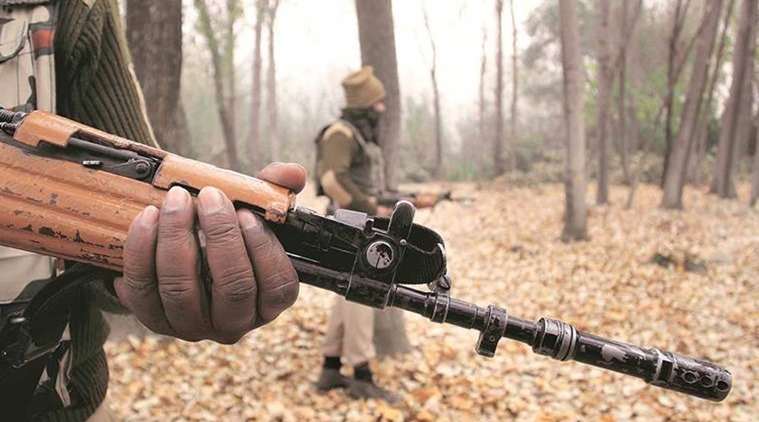 The company was granted the lease for iron ore mining on 348 ha way back in June, 2007 (Representational)
The company was granted the lease for iron ore mining on 348 ha way back in June, 2007 (Representational)
Plans to set up a much-anticipated steel factory – the first major industrial unit in Naxal-hit Gadchiroli — has virtually hit a dead-end. No iron ore mining has taken place in the last 15 months at the site due to a deadlock between the mining company and police over providing security.
The mining operations of the company, Lloyds Metals and Energy Limited, at Surjagad in Etapalli tahsil of the district has remained suspended for the past about 19 months, barring two days, March 13 and 14, last year. The company had taken possession of 50.29 hectares of land at Konsari village in Ashti tahsil for its proposed sponge iron plant on August 29 last year, but the construction work appears a long way away, with the ore mining showing no signs of resumption.
The proposed factory, to be built at an investment of Rs 700 crore, will start off as a sponge iron plant with a capacity to produce 10,000 tonnes per annum. It is expected to generate at least 1,200 direct and over 3,500 indirect jobs. The company purposes to later scale up the investment up to Rs 3,000 crore to develop it into an integrated steel plant.
The company was granted the lease for iron ore mining on 348 ha way back in June, 2007. But, in July that year, Naxals had kidnapped two of the company’s officials, S K Sharma and L V Raghuse from Surjagad, who had gone to the site to conduct a survey. They were released two days later.
Another kidnapping took place on June 14, 2011, when 40 labourers were taken captive for a day from the mine site by Naxals. Two years later, on June 12, 2013, the company received another major setback when Naxals murdered its vice-president J S Dhillon, along with two other employees. Finally, the actual mining at the site began in March 2016. But the Naxal attacks continued, and on December 23 that year, they set afire 74 trucks and six other vehicles at the mine site.
After mining work went on intermittently for two years, it again stopped after a truck going to the mine site collided with a bus, killing four bus passengers, on January 16, 2019. It had led to huge public outcry, with local residents setting afire 12 trucks deployed to transport the extracted ore. Subsequently, due to the Lok Sabha elections, mining was stopped due to the high security alert in the area.
On May 1 that year, an IED blast killed 15 policemen, and the mine continued to remain shut due to the incident. The state Assembly elections later that year, and the months-long flux caused by the stalemate over government formation, delayed operations further. The Covid-19 pandemic this year has further stalled mining operations.
The many incidents only underscored that security was a key issue for mining activities at Surjagad. “We need police security for at least eight hours a day, 20 days a month, to be able to extract the required 50,000 tones of ore per month to run the proposed plant. As against that, from March 2016, when we began the Surjagad mine operation, we have extracted only about 4.75 lakh tonne ore in a total of about 250 days of mining,” said sources in the company.
Gadchiroli Superintendent of Police Shailesh Balkawade, however, said, “We are ready to provide the security any time. The company just has to pay the charges.”
A company official said, “We are ready to pay the charges and have approached the government for help on that count but there has been no headway”.
To ensure safe mining, police will have to deploy at least 350 personnel to guard the site for 20 days a month, but officials said there is an inherent danger in such deployment.
“It is fraught with the danger of becoming an obvious routine of the police… so, the most crucial element of surprise in such strife-tron areas like Gadchiroli, will be lost. Also, sustained security for days and months on end is always likely to become lax over a period of time. Even a moment of laxity could turn police into sitting ducks,” said a police official.
Immediately after taking over as chief minister of Maharashtra, Uddhav Thackeray had spoken about setting up a steel plant in Gadchiroli as one of the state government’s top priorities.
“With mining permission currently for less than 30 hectares, we are able to provide direct employment to about 700 persons on any given day. Just imagine the scale of employment when we would be able to generate it by not only operating the mine, but also establishing and running the iron factory,” said the company official.